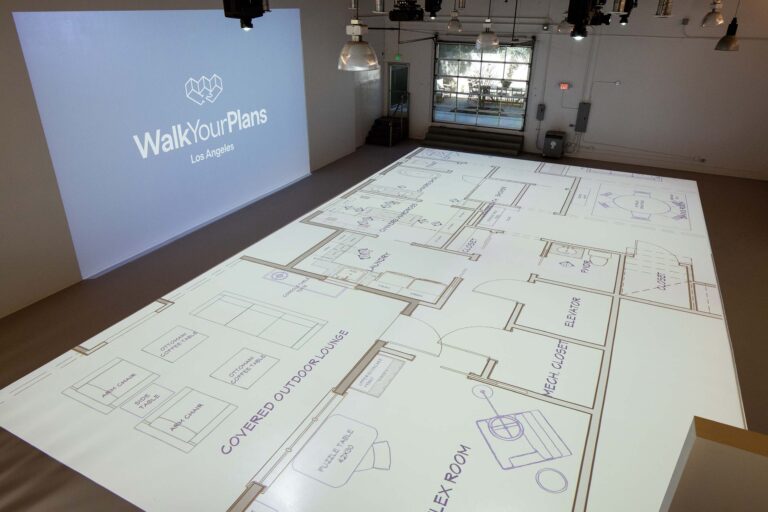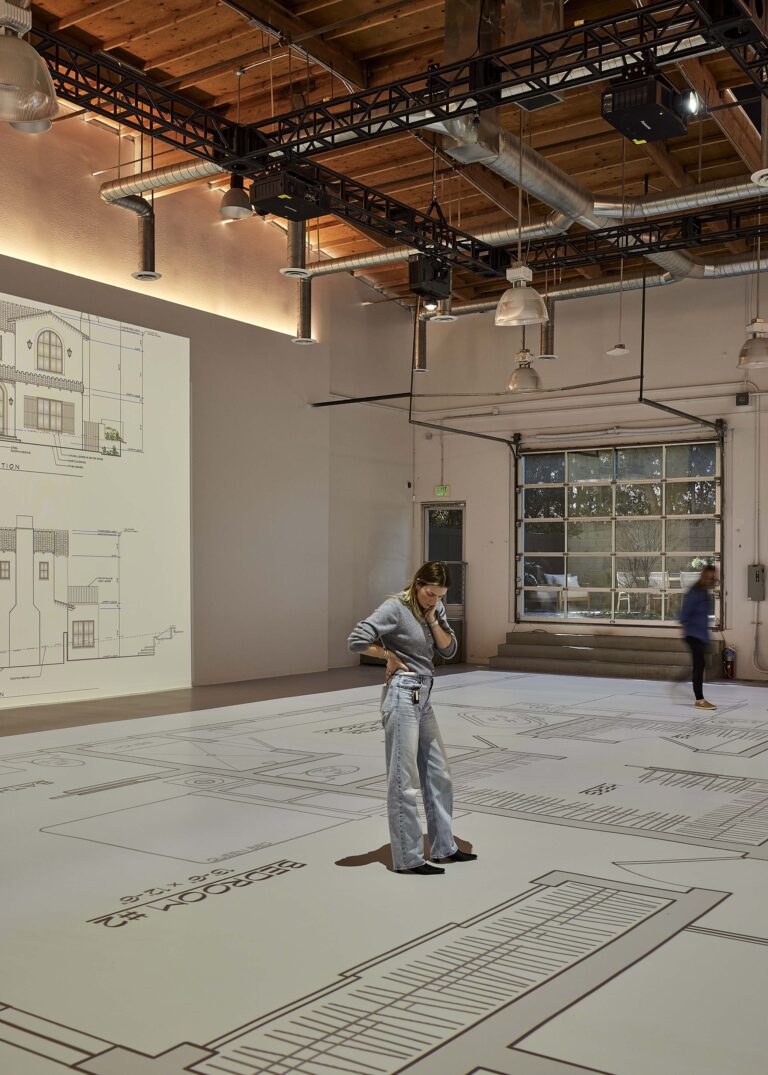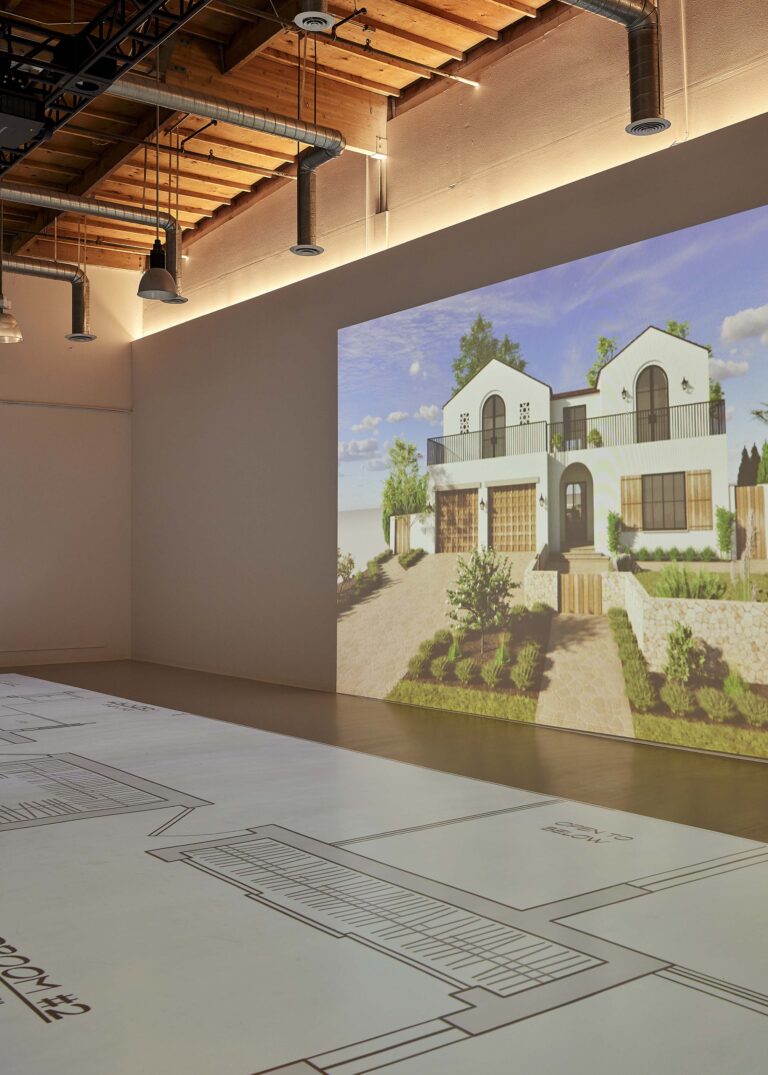Table of Contents
In this Episode
Bill Ruane defines what happens when you blend hard work and passion as he has risen to the top of RE/MAX nationally, won every award there is to win, and continually ranking as one of the top agents in the nation focusing primarily on his hometown of El Segundo. Learn Bill Ruane’s unique perspective on the market, tips on how to scale your business, and how staying true to the fundamentals is the secret to his success. Please share your thoughts and enjoy!
Top Quotes
“So let’s say they’re into sports and they want to be a realtor, but that’s common. But try and see it for one month before they do anything. Not to watch any sports on Sunday, because I think for the rest of their career, Sundays will be open houses, air dealing with buyers. So if they can’t handle that, they probably won’t quite make it again in the real estate.”
Tweet
“Mike Collins worked for RE/MAX my first year and incredible teacher. I mean, he made me read books, read more then than I did in college and door-knocking…Real estate agents in general are not disciplined. They are kind of a different personality. They want freedom. But if you’re not structured, and he taught me structure, I was not that person who had structure.”
Tweet
“Just as far as when you’re talking to residential people in general, including myself, you have to spend a lot more time with them because it’s a big part of their financial portfolio. And then on the commercial side, it’s purely, it’s a business decision that they’re moving or selling or leasing”
Tweet
Episode Resources
Follow Along with Bill Ruane
Follow along with Bill Ruane here: billruane.net
Full Episode Transcript
Bill Ruane: [00:00:00] There’s a complex in El Segundo, 770 West Imperial, it’s a hundred units. It was 70% renters. So when I was door-knocking, asking them if they wanted to sell, you know, half the people who were slammed the door in my face, the other ones told me to go away. No, I rent and they didn’t tell me that they rented.
[00:00:22] They just said that, don’t bug me or call me. And when I came back, Mike said, Oh, I knew they were renters, but I figured that if you can handle this hundred units, then one at a times will easier. [00:00:31] Warren Dow: [00:00:31] If you can get rejected seven out of 10 times, you’ll be on your way. [00:00:34] Bill Ruane: [00:00:34] It was a little more than that. Yeah. [00:00:46] Warren Dow: [00:00:46] Welcome to the DIGS Influencer Podcast—The Titans of Real Estate. The show that provides direct access to the real estate industry’s top movers and shakers as they share invaluable insight on how to best navigate and succeed in any market. I’m your host, Warren Dow, founder and CEO of media and publisher of digs magazine. [00:01:09] In this episode, Bill Ruane. [00:01:19] Thank you to our show sponsor bow concept. Today we welcome to the DIGS Influencer Podcast, the number two RE/MAX agent in California, and the number two RE/MAX agent worldwide who consistently ranks as one of the top producing agents in the country. Welcome to the show Bill Ruane. [00:01:37] Bill Ruane: [00:01:37] Thank you Warren, and thanks for taking the time to have this interview. [00:01:40] Warren Dow: [00:01:40] Before we get into your backstory, Bill, I want to jump right into real estate. You’re truly a case study. Success story in focusing and dominating a niche community in real estate. In your case, El Segundo, was this always your plan? To focus on a single community? [00:01:57] Bill Ruane: [00:01:57] No, I’d just fall into that as far as, I worked public relations for embassy suites for one year, and that got me into all the companies on how many companies were in El Segundo and then expanding from there into real estate. [00:02:10] Warren Dow: [00:02:10] So that was in El Segundo? [00:02:11] Bill Ruane: [00:02:11] Correct. They had just opened up at the time. [00:02:13] Warren Dow: [00:02:13] Okay, gotcha. And you have an interesting mix of business, different from most realtors and the sense of they either focus on residential, single-family, correct. Or commercial. Multifamily kind of units. And you, you have a true mix of all three. [00:02:29] Absolutely. So tell us, was that again part of the plan or was that, did you by that [00:02:33] Bill Ruane: [00:02:33] it was mainly residential was my goal. And then you found out that people who owned residential, they also owned commercial and they still, you know, wanted to work with you on both. And so you were, I won’t say forced into it. [00:02:45] Warren Dow: [00:02:45] It’s a compliment. One led to the other [00:02:47] Bill Ruane: [00:02:47] one led to the other, and then all of a sudden the different personalities, commercial sellers versus residential sellers, a lot less emotion in the commercial side. A lot less thinking as far as what you put the sales price at. It’s absolutely numbers on the commercial while residential side, it’s a lot more, you know, what the property looks like, what’s the decorations like a lot of the more cosmetic as well as location on both is number one, obviously. [00:03:09] Warren Dow: [00:03:09] So interesting. So you really have to understand. Obviously the subject matter in terms of what asset class it is, but also sort of what are the emotions and sort of. Psychology behind those, those assets. Just like you said, it’s interesting. They’re different. [00:03:24] Bill Ruane: [00:03:24] Correct. They’re completely different. And you got gotta be able to switch to that personality immediately. [00:03:28] You know? Just as far as when you’re talking to residential people in general, including myself, you have to spend a lot more time with them because it’s a big part of their financial portfolio. And then on the commercial side, it’s purely, it’s a business decision that they’re moving or selling or leasing. [00:03:43] Warren Dow: [00:03:43] What’s your business mix typically on the, along those three residential, commercial. [00:03:48] Bill Ruane: [00:03:48] It was 48 52 last year at about 40 60 the year before residential been number one. [00:03:54] Warren Dow: [00:03:54] It’s good that you know those numbers. Yeah. It’s funny cause a lot of the top agents that I speak to, I ask like, what was your volume last year? [00:04:00] How many trends? They’re like, I don’t know. I think it was around this, you know. They know how much money they made, but how it led to that or what led to it, what the mix. They don’t know. That’s funny. Good. You know, you know your numbers, so how was the Elsa going to market change since you first started selling real estate there? [00:04:15] Bill Ruane: [00:04:15] The old East SAS pivotal was not really developed that well. Until the last, probably last 10 to 15 years now, Alsco has the second most fortune 500 companies in California apart from San Francisco. So we have a lot more businesses. We have a lot more people coming in here from out of the area. While before it was predominantly Elsa, no kids growing up, condos house. [00:04:36] And then again, it was just families from a local cities coming in. . [00:04:40] Warren Dow: [00:04:40] Got you. So, so let me ask you a question, kind of a different one. Why, why do you think most real estate agents fail. [00:04:46] Bill Ruane: [00:04:46] A lot of realtors come here after their as their second job, or they might be coming in their, their 50 sixties or seventies after they’re done with their first job, and I think they’re used to that nine to five type of hours, weekends off as completely the different nowadays. [00:05:01] And then more and more you have companies like yo, Raytheon, Boeing. Mattel, they’re not real keen on you taking off a couple hours for lunch to go look at homes or are making personal calls, you know, during working hours as they shouldn’t. So now you adjust your hours to more, you know, four o’clock in the afternoon until eight o’clock at night. [00:05:19] Weekends are going to be a lot more, but a lot more detailed as far as your scheduling with people for buyers [00:05:24] Warren Dow: [00:05:24] and interest. So it’s definitely full-time. The ones that make it and prosper are full-time. They’re fully vested, fully invested, they’re all in notion and that’s, yeah. And I said, okay, what advice would you give a new agent getting started today? [00:05:38] Bill Ruane: [00:05:38] So let’s say they’re into sports. And, uh, they want to be a realtor, but that’s common. But try and see it for one month before they do anything. Not to watch any sports on Sunday, because I think for the rest of their career, Sundays will be open houses, air dealing with buyers. So if they can’t handle that, they probably won’t quite make it again in the real estate. [00:05:57] Warren Dow: [00:05:57] It’s a good perspective. Yeah. Yeah. So how do you personally differentiate yourself from the competition? Like what’s your, you know, secret, unique? [00:06:05] Bill Ruane: [00:06:05] My competitors or my, I want to say competitors, I think we’re all kind of have the same goal. We have different niches, but I don’t know any of them who don’t answer their own phone number one and always are available from nine o’clock till nine o’clock seven days a week. [00:06:18] I haven’t found a trick of someone doing a eight to five. Like I mentioned, there’s no one doing that and being number one. [00:06:23] Warren Dow: [00:06:23] So let’s talk about how you got into real estate. When did you get started? What, what year was it and how, tell us a little bit about that. [00:06:30] Bill Ruane: [00:06:30] So I was working at embassy suites hotel at the time, and uh, that was an El Segundo public relations, but as basically six days a week, probably 60, 70 hours a week, a great career to, to learn, to teach to as far as work ethic. [00:06:44] Then I was introduced to a couple of different people in the real estate as well as there was a friend of mine growing up. Brian Braylin. His dad was in real estate, and so we were always at his office. So all of a sudden it became innate because we’ve always been a real estate office, even though both my parents were doctors, the medical profession was not an option for me by due to my education, but it’s a, that’s how I got basically pushed into it by admiring the people in the industry. [00:07:11] Warren Dow: [00:07:11] And it was comfortable when you were in there just sort of hanging out and going, Hey, this is something I could do. And. Correct. Figure out [00:07:17] Bill Ruane: [00:07:17] you liked it. It was just kind of a, it was local. There was no traveling, you know though, the positive sides of it. [00:07:22] Warren Dow: [00:07:22] And you started in El Segundo, right? Correct. Okay. [00:07:24] So tell me about your first sale. What was your first sale? [00:07:27] Bill Ruane: [00:07:27] There was a house for rent, and I called them to see if they wanted to sell their house on candy cane lane. In fact, Nelson ghetto. And that was a, my first home sale was there. And also my third home sale was on that same street, you know, so. They both were rich in selling their house. [00:07:41] Right. And they’re renting it at the time. They could not rent it. So it was just a, it was just a fluke. It was just timing. [00:07:46] Warren Dow: [00:07:46] So what year was that?Bill Ruane: ’89
Warren Dow: ’89 okay. Interesting. Back to realtors and knowing their numbers. A lot of them don’t know their numbers, but they all know the answer to that question in their first house that they sold.
[00:07:57] They know the address, they know the story. It’s like clockwork. What’s been your biggest sale thus far in your career? Probably commercial, [00:08:04] Bill Ruane: [00:08:04] commercial, the house and hotel, which was on. [00:08:07] Warren Dow: [00:08:07] Okay. Wow. That is a [00:08:09] Bill Ruane: [00:08:09] 650 room hotel. I’m sorry, 605 or more hotel [00:08:12] Warren Dow: [00:08:12] The corner of Mariposa. Okay. Exactly. Wow. What’s the, what was the price [00:08:17] Bill Ruane: [00:08:17] that was, that was $25 million. [00:08:18] Warren Dow: [00:08:18] Really? You think it’d be more for something that big [00:08:21] Bill Ruane: [00:08:21] and it was interesting cause it was five acres of land, but again, it was an old hotel and play a lot of rooms. [00:08:26] Warren Dow: [00:08:26] And who bought that? [00:08:27] Bill Ruane: [00:08:27] It was sold twice since then. [00:08:29] Warren Dow: [00:08:29] Oh wow. And what about the place we used to go hang out there? Way back when it’s got the huge parking lot. [00:08:36] The old sports bar. Are they sticking Stein? Yeah. Stick. So [00:08:39] Bill Ruane: [00:08:39] seven Oh seven suppose that’s going to be 116 room hotel. It’s going to be a boutique hotel, non-union. It’s someone in San who owns quite a few hotels, and I think he’s gonna do it. Kind of a unique job with this one. Wow. [00:08:50] Warren Dow: [00:08:50] So they’re, they’re definitely looking at putting hotels. [00:08:53] It’s a, it’s a good corridor there, right? [00:08:54] Bill Ruane: [00:08:54] Correct. Because of the employment. [00:08:56] Warren Dow: [00:08:56] Yeah. Okay. Interesting. As we hit on early, when I introduced you, I mean, you’ve won every major award. And recognition at RE/MAX that there is pretty much correct. So did you have a mentor early on in your career or someone at RE/MAX or that you learn the business from where you’ve tried to shadow and you [00:09:14] Bill Ruane: [00:09:14] Mike Collins, who worked for Shorewood? [00:09:16] Warren Dow: [00:09:16] I know Mike [00:09:17] Bill Ruane: [00:09:17] great, great guy. He worked for RE/MAX my first year and incredible teacher. I mean, he made me read books, read more then than I did in college and door knocked in. Oh, it was basically he a disciplining. Real estate agents in general are not disciplined. They are kind of a different personality. [00:09:34] They want freedom. But if you’re not structured, and he taught me structure, I was not that person who had structure. Mike Collins had sent me to door-knock, which is the one thing leaders just absolutely despise doing. And he knew that that was one way to get out there. There’s a complex and no, at seven 70 West Imperial’s a hundred units at the time, I did not know it. [00:09:55] It was 70% renters. So when I was door-knocking, asking them if they want to sell, you know, half the people who were slammed the door in my face, the other ones told me to go [00:10:02] Warren Dow: [00:10:02] away. No, I rent. [00:10:04] Bill Ruane: [00:10:04] And they didn’t tell me that they rented. They just said that, don’t bug me or call me, or just so I wanted to call their owner. [00:10:09] That was a tough experience, [00:10:10] Warren Dow: [00:10:10] but it was a good learning. It was great learning [00:10:12] Bill Ruane: [00:10:12] experience. And when I came back, Mike said, Oh, I knew they were renters, but I figured that if you can handle this hundred units, then when at times we’ll leisure, [00:10:20] Warren Dow: [00:10:20] if you can get rejected seven out of 10 times, you’ll be on your way. [00:10:23] Bill Ruane: [00:10:23] There’s a little more than that. [00:10:24] Warren Dow: [00:10:24] Yeah. Was he the biggest influence you think and like most impact, or was there another person downstream that [00:10:30] Bill Ruane: [00:10:30] there was, Bob Brantlyn was one of the biggest ones, and Mrs. Young, they were both real estate agents as I was growing up. And also OGA Benson, who, whose son is in charge of all of her properties now, and they’re just a great family. [00:10:41] Awesome. [00:10:42] Warren Dow: [00:10:42] So let’s go into your backstory. Take us back. So you grew up in the South Bay, correct? okay. What was life like back then? What did you do for fun as a youth and what, how was El Segundo back then? [00:10:55] Bill Ruane: [00:10:55] Oh, it’s gonna. Especially their main street is pretty much the same. I mean, we don’t have the, didn’t have the rock and brews and a report and I was going to brewing company. [00:11:03] It’s still a lot more stores. It’s funny cause West side of is still 1960s closes at nine o’clock you know, East says poet is 2050 way ahead of its time just to the kava. Amazing. Dichotomy. [00:11:15] Warren Dow: [00:11:15] Wow. So both your parents were, were physicians? Correct. Where did they grow up? [00:11:19] Bill Ruane: [00:11:19] My dad had a physician’s office in Hawthorne. [00:11:22] He died when I was 18 my mom’s still alive in short trolley County schools. [00:11:25] Warren Dow: [00:11:25] Okay, good deal. So what were some of the favorite things when you were young? What did you do? Did you. Can you go where your beach guide, did you go [00:11:32] Bill Ruane: [00:11:32] surfing was predominantly bike riding. Is this a big thing? Cause we had wasn’t too long ago that you still had vacant fields and cut, including El avant, which has just built five [00:11:41] Warren Dow: [00:11:41] years ago [00:11:42] Bill Ruane: [00:11:42] were all vacant fields and you’re just bike ride out there. [00:11:44] You know, just there was, there’s nothing out there. Yeah. So that was pretty awesome. Of the things you, I mean, [00:11:48] Warren Dow: [00:11:48] well it’s funny you say that cause I grew up in Westlake Village, California. And uh, we moved there in 1970, 1969 70. And there was no Lake in West Lake, and it was literally the same thing. All the developments that like on West Lake Boulevard now they were, it was all empty fields and we used to have my sister and I used to fly kites and bikes and you could walk forever and there was nothing, there was nothing. [00:12:14] Correct. Now you go back and it’s just like there’s development everywhere, every nipping penny, [00:12:19] Bill Ruane: [00:12:19] and nothing bad about that. Just, it’s just, it was a different time. Yeah. [00:12:22] Warren Dow: [00:12:22] You know, Westlake back then was not on anyone’s radar. My parents chose to live there because my dad worked in like midtown, Vermont, Midtown LA, and he didn’t want to live in the city. [00:12:34] He wanted, you know, so it was, back then there was no traffic was, uh, you know, 35, 40 minute straight trucks, straight shot down down the freeway. And then when it, the traffic in the more development, it turned into an hour and then an hour and a half and it’s like, okay, it’s not hitting anymore. So when you were going to school, did you have, did you want to be something specific when you grew up? [00:12:54] Did you have any like, Hey, I’m going to be, you know, an X, Y, or Z? Like, did you have a career aspiration when you were young? [00:13:00] Bill Ruane: [00:13:00] I think, you know, we all want to be a paramedic, you know, that type of thing. I was probably the closest you ever wanted to be as far as medical. And again, that was something that was just a phased and do anything with it and do anything trying to achieve it. [00:13:11] I just. Thought it’d be kind of a great job. And then you also want to get a politics. But politics and real estate usually don’t go hand in hand. More divisive than United [00:13:20] Warren Dow: [00:13:20] church and state. And there’s two things that they should never talk about, right? Correct. Religion and politics. Keep it vanilla. [00:13:27] Bill Ruane: [00:13:27] Neutral as you can be. [00:13:29] Warren Dow: [00:13:29] So we talked about your, your first gig before getting into real estate, but when you were, when you were young. What’d you do? Did you deliver pizzas or would you do anything? [00:13:37] Bill Ruane: [00:13:37] like, you know, I worked at a, uh, became real popular cause I actually worked at straw hat pizza in Ladera Heights and also had worked at a liquor store. [00:13:44] Okay. So in high school, worked at a liquor store. You’re, the popular kid [00:13:48] Warren Dow: [00:13:48] was [00:13:48] Bill Ruane: [00:13:48] like, Hey Bill, [00:13:52] Warren Dow: [00:13:52] tell me about a significant event or time in your life that changed you or set you on a different path. Was there a moment like we call them aha moments and they can be good or bad, like through pain and suffering or. Other, like is there a moment that you remembered that. Cemented, sort of your journey? [00:14:08] Bill Ruane: [00:14:08] Kind of ironic of all my career times. It was ironically last year, and most people don’t even know it, but I had a minor surgery that went, went sideways. Wow. And so that morning, Nixon, no, I was in a hyperbaric chamber at long beach hospital and here I thought it was just a minor thing. And then the, uh, by new one, the doctor was coming at 11 o’clock at night to tell me that to go on in the morning. [00:14:28] She was pretty concerned, obviously got me concerned, was going to be five times I was going to be in that, uh, chamber. And have been claustrophobic, doesn’t help anybody. It had been 19 times of an hour and a half and that chamber, and it’s just Bill time. You know, just your time to think and you’ll realize you don’t have that time. [00:14:46] Cause I live for distraction here. You’ve got so much going on and here you are in a tube. And probably the worst thing, best thing ever happened to me. It wasn’t fun. I won’t say that, but toward the end. It’s kind of at stages of death. Do you accept it and you grow from it. And it was an incredible motivator, cause I have no desire to be that guy who wants to retire or that guy who just wants to sit around and just doing nothing. [00:15:06] And that’s why I felt like I was doing for an hour and a half each day. [00:15:08] Warren Dow: [00:15:08] Well, so re-energize you and reenergize focus back on purpose. Exactly. [00:15:13] Bill Ruane: [00:15:13] Kind of. It was a positive event, even though it was a scary event at the time. [00:15:15] Warren Dow: [00:15:15] So wow, that’s, that’s an amazing story. And here you are. Better than ever. So that’s good. [00:15:21] Bill Ruane: [00:15:21] It was incredible. Yeah, it was. Absolutely. And it’s funny cause the surgeon there had a great sense of humor and said, yo, you have celebrities paying thousands of dollars to go into this chamber and you know, here you get a free with insurance. And I said, I don’t want to, I still don’t want to do it, even [00:15:34] Warren Dow: [00:15:34] if it’s free. [00:15:36] Well, something from that, I mean, and this is sort of work-life balance, but I found in, I used to be a CEO of a, of a big company and there was so much distraction and so much going on day and night and emails and phones. Meetings and you can never get clarity of thought unless you were sort of forced away. [00:15:55] And for me it was like on airplanes. Right. And I had an over an hour commute, which was very, I would try not to use my phone to work, you know, if I can help it. Right. Just to think of, sometimes it’s just no music, just, just silence. Just like let your brain actually do something totally different. Like no stimulation. [00:16:11] So you can think it’s sort of radical, isn’t it? Like in today’s day and age, [00:16:15] Bill Ruane: [00:16:15] and when you realize that you know, you, for 30 years, you’re, you’re on the phone, you’re texting everything else and you’re, you’re, you’re up to about a hundred 110 phone calls a day and probably at least that amount and texting. [00:16:26] So you’re costly, distracted and not focused even on life and not in a bad way just to, you’re focused on work. Yeah. And which again, I know you, you hear these speeches all the time about, you know, when you die, you don’t say, God, I wish I worked more. But in some ways, if you didn’t work more, you wouldn’t had a quality of life that you did have. [00:16:42] Warren Dow: [00:16:42] Yeah. I need a purpose too. You need to like, if you don’t, I think where people get in trouble and where life can be especially difficult is when you don’t have a purpose. Exactly. And nothing’s driving you. You know? And just simple work can be a good purpose and driver. I mean. You know what I mean? [00:16:58] There’s something satisfying about plowing the field, like and having a set schedule and doing whatever you’re doing. Or there’s something [00:17:04] Bill Ruane: [00:17:04] cause retirement. I mean, maybe there’s people that have a, have a goal with it and that’s part of the 10% you’re the one to retire. You don’t just go camping, traveling and everything. [00:17:13] I think those people are well set. Some people, I think that. They’re not made to retire. And I think I’m definitely one of those P my dad’s one too, [00:17:21] Warren Dow: [00:17:21] right? It’s just got a, and he’s selling real estate now and he’s 80 and he’s still selling enough and pace in Arizona. He was a CEO, worked his whole life, same kind of thing. [00:17:29] And when he retired, he was, there’s no way you can go from that level of sort of being busy and occupied to nothing. It’s, it’s a dangerous place and place. And one of his best friends, poor guy, developed Alzheimer’s. He sold his company, was kind of a similar story. They grew up best friends. He’s still alive, but he’s, he’s suffering from, you know, Alzheimer’s. [00:17:51] He sold his company, he made, made his money. He lives on, he’s got a home home on Malibu beach road. He’s got, you know, and he worked his whole life for that. And then when he retired, his brain literally shut down. And so you looked at your whole life’s work, right? And then you can’t even remember who you are or what you’re doing. [00:18:08] That’s crazy. So I’m a firm believer in keeping an active mind. Inactive is, you know, what’s the other term for it? Idle hands, you know, idle brain, maybe his is [00:18:19] Bill Ruane: [00:18:19] probably a better word. Yeah, [00:18:19] Warren Dow: [00:18:19] exactly. I mean, I only rattle brain is not, [00:18:22] Bill Ruane: [00:18:22] and the one thing about real estate at similar to teaching, you know, if you get handicap or impaired, you can still do both. [00:18:27] I mean, got and believe me, teachers have a lot more use than their realtors do for the general public. So they’re both amazing jobs as far as having that ability to be impaired and still being able to do your job. [00:18:38] Warren Dow: [00:18:38] Yeah. Let’s talk about real estate. You know more getting your insights and Intel. [00:18:44] What are some of the most common myths you think in real estate that you can debunk for our audience? [00:18:49] Bill Ruane: [00:18:49] So I think one of them is that, you know, that’s how you make your millions in real estate. Well, that’s how most people made their millions in real estate. But it’s also timing. You could have bought in Oh eight and basically the next year you’re 25% negative in here. [00:19:01] Home sales, so you want to make sure you do your research on the area of the city, even if you don’t have kids to make sure the school districts, number one, make sure they’re good police and fire department. Make sure it’s just a solvent area that you’re looking into and treat it like a business, not just a, this home looks great and you can buy a home in Nebraska that’s $20,000 but there’s no employment, so you’re always going to be worth $20,000 and your retirement is not going to look that great. [00:19:26] Warren Dow: [00:19:26] Yeah, that’s going to be with 20 is it? You’re skipping ahead. My next question was going to be. What I see, you know, and I’m sure you see it all the time, real estate consumers fall into the prey, sort of the thinking, you know what I call stock market mentality when it comes to buy or sell, they wait. [00:19:40] You know, and timing is important obviously, but you can’t, no one controls timing. And people try to do that just like they do in the market, you know? And it’s, you know, what are your thoughts on this? Trying to. When you’re advising clients and they’re saying, is it a good time or bad time? And you know it’s about timing. [00:19:55] What do you, what are your thoughts on that? [00:19:57] Bill Ruane: [00:19:57] And good time or bad time? It depends if their investment property or they’re a primary home because you have to live somewhere and if they’re going to waste the money on rent, the ne time’s a good time to buy because anything’s better than renting for your own purpose. [00:20:09] But as far as investment property, I think as far as strategy. That’s trying to see you know, what, what’s coming in in the area of what’s going to help the market grow and what areas have rent control, what areas don’t have rent control, because that also limit your upside on a property you’re going to buy. [00:20:23] Warren Dow: [00:20:23] good advice, speaking of advice, what’s the single best piece of advice you would give. A seller today, [00:20:29] Bill Ruane: [00:20:29] so before they sell, make sure that they haven’t a plan for the next step, or do they plan to do what’s they sell? Do they have a place that they’ve already bought? Is there an area they’ve already bought? [00:20:38] I mean, again, going back to your timing and making sure it’s a wise decision. If they’re not familiar with an area they’re moving to, maybe they rent the house are in now and then rent where they’re going and see if they still want to move a year later, if they still want to make a move a year later than they’ve thought it out. [00:20:53] Warren Dow: [00:20:53] How about market conditions. And how, how heavily do they weigh into your consultations with buyers and sellers? Like in terms of like, well, then we’re coming up on a, maybe another real estate cycle. It’s going to slow down. What should I do? I mean, [00:21:07] Bill Ruane: [00:21:07] with the South Bay, we tend to have a lot of relocation and relocation is year-round. [00:21:12] While most areas have, you know, summertime yourself, you know, wintertime you buy, we don’t seem to have that cycle as much as everyone else. [00:21:19] Warren Dow: [00:21:19] And Elsa gonna know why the way enormous price gains in the last seven to 10 years, [00:21:24] Bill Ruane: [00:21:24] especially our commercial, [00:21:26] Warren Dow: [00:21:26] which, which again, more sense. [00:21:28] Bill Ruane: [00:21:28] Our residential? Yes, yes. [00:21:29] The smokey hollow, you know, less than 10 years ago was $200 a foot. Now it’s creeping up on five and $600 a foot. [00:21:36] Warren Dow: [00:21:36] And is there still grow? So is it, is, is that still, is it fair, valued, undervalued, overvalued? What do you think? Well, [00:21:41] Bill Ruane: [00:21:41] let’s see. It’s fair value. It’s just a great little area. And instead of being in like Venice or, or Mar Vista or Inglewood, as far as your commercial area, you have a small little city and you have walking distance to 50 restaurants. [00:21:52] And I don’t think you get that in the [00:21:54] Warren Dow: [00:21:54] larger areas. So speaking of Inglewood with a new stadium going on, his also got no gotten any benefit yet. Any sort of cross trickled down benefit from, from that investment yet? [00:22:04] Bill Ruane: [00:22:04] Not really. And I would think that we would have, it’s really helped Hawthorne, I think, cause that’s a budding city. [00:22:11] More the price range, probably Hawthorne, Inglewood. I do think and go a did a, and I’m a very controlled person. If I do think they did a wise move on doing it, emergency rent control, that they limit the amount five or 7% a year because you had people living in their apartments for 2030 40 years and now the apartment buildings doubled in price. [00:22:30] Well, now that you bought the price, now you have to have these people move because they can’t afford it. So it’s a really a balancing act on that side. But a lot of those people moved to Hawthorne. More than Manhattan Beach. On the other hand, I should believe that it should be up to an individual city, not the state to control the ride control. [00:22:47] And those cities should make their own decisions based on their demographics, their environment, and economic standing. [00:22:52] Warren Dow: [00:22:52] The commercial market in El Segundo, again, is it, how much growth is there left? Cause I mean, there’s been so much growth. You know, Avalon, there’s so many. Like you have new buildings, new infrastructure with. [00:23:03] Bill Ruane: [00:23:03] Well, the Raytheon property, which is a park, I know it’s going to Boulevard and slash PCH is 144 acres, and that’s now being rezoned for commercial, high rise and retail. So that’s a huge chunk of land that’s been developed. Now, [00:23:16] Warren Dow: [00:23:16] is there any big parcels left? I mean, [00:23:19] Bill Ruane: [00:23:19] that’s the biggest one. And again, it was a park, so it’s not like it’s taken down a high rise to build a high rise. [00:23:24] You have an area of land that was always vacant for, you know, since it began at a time, they, as far as being a park, and then there’s eight acres on aviation and Imperial, that’s going to be. I think that’s going to be like a campus of some type. [00:23:35] Warren Dow: [00:23:35] Very cool. And then you’ve got the new Lakers, obviously training facility. [00:23:38] Right. [00:23:38] Bill Ruane: [00:23:38] And the LA times, you know, he, he’s a great guy. He’s, he’s trying to get the cure for all cancers, which is amazing. Not just one cancer. He’s adopted Alsigando or we adopted him. I’m not sure which one came first, but just a very supportive person for the city. [00:23:51] Warren Dow: [00:23:51] Well, interesting you say that, cause I was at one of the economics. [00:23:54] Council or development dinners. Right? I got to hear him speak, and we should for the audience, Patrick dune Shung, he’s done some incredible things and is part-owner of the Lakers now LA times a huge and medical and, and it’s funny that you say that. Also gonna was adopted and I think people, a lot of people that get exposed to Gundo, they fall in love with El Segundo. [00:24:16] Right? It’s still this sort of. I don’t know how you describe it. It’s like [00:24:19] Bill Ruane: [00:24:19] amazing charm [00:24:20] Warren Dow: [00:24:20] in adjusting the charm and it’s just, it’s, you feel like you’re, you want to support it. And the, it’s almost feels like a perpetual up and comer, even though it’s not right. You know what I mean? Exactly. But that’s a good thing. [00:24:31] Yeah. That’s, that’s, people want to like, [00:24:33] Bill Ruane: [00:24:33] you know, and if you go down main street within, within one year, you know, who lives in, it’s gonna who doesn’t live in Chelsea? I know. It’s kinda, it’s a big high school. It’s a very small area. [00:24:41] Warren Dow: [00:24:41] Yeah. When I first drove, drove through there, I called it Mayberry. I mean, it was like going back in time. [00:24:46] Right main street and a good way. Exactly. In a good way. Looking for a personal stylist for your home. Check out Bo concept. One of their design consultants can help you make the most out of your space. No request is too big or small for living, dining, sleeping home office and outdoor spaces, and check out their Southern California showrooms in orange County, in Costa Mesa, and also in Los Angeles on LaBrea. [00:25:08] For more information, visit Beau concept of Bo concept.com email info@beauconcept.la. [00:25:16] Bill Ruane: [00:25:16] It’s funny cause I, like I said, I went to st Bernard’s and Loyola Marymount and different cities, you know the, and there are bad cities, just no skin. No. You still see the people eye contact when they’re walking and they say hi. [00:25:26] It’s no one’s looking down on the ground. No one’s trying to avoid you. And it’s very much a, just a very outgoing people. [00:25:32] Warren Dow: [00:25:32] That’s great. And in today’s day and age, it’s, that’s more important than ever. Quite small-town community. Nice happy people. [00:25:41] Bill Ruane: [00:25:41] Right. [00:25:41] Warren Dow: [00:25:41] Exactly. So let’s go back to. Bill and some of your numbers. [00:25:46] You’re the stealth bomber, as I was saying, in terms of like, people know you, you, you, you’re a huge name in this industry, but some of the volume that you do is mind-blowing. Can you speak to, do you know your like lifetime sales number. This is a quiz. So hope you, [00:26:01] Bill Ruane: [00:26:01] I don’t know how many sales I’ve done, [00:26:04] Warren Dow: [00:26:04] but it’s gotta be at least way over a Billion. [00:26:07] Right. 2 Billion [00:26:08] Bill Ruane: [00:26:08] at least that cause it looks at, it’s a, you have some big sales cause you do commercial and residential, [00:26:12] Warren Dow: [00:26:12] but you average over a hundred million in sales, pretty much. Correct. Right. Exactly. Yeah. So that’s a huge number. [00:26:17] Bill Ruane: [00:26:17] Huge. And it’s funny cause you don’t think about the numbers. And again, going back to how I was trained, the person buying or selling their $350,000 condo or the hotel, they’re still the same phone call. [00:26:28] They’re still the same amount of time on the phone. There’s no priority as far as like who gets to be first, who’s second is because of the price level. And that’s what I was taught and I found out that’s more important than anything else. [00:26:38] Warren Dow: [00:26:38] So you probably don’t even know this. It just, I don’t know why I just thought of this now, but you and I spoke on the phone. [00:26:44] Probably even before I launched digs, when I was looking at either, you know, investing or something in commercial or whatever. I used to, I called you a few times, and this was before we knew each other, right? Yes. What I remember is just what you said in the beginning, you always pick up the phone and if you couldn’t talk, you said, I’ll call you right back, and you always call me right back. [00:27:05] And that’s, that’s a huge in this business. It’s huge, [00:27:08] Bill Ruane: [00:27:08] right? Versus I know a lot of people kind of do the email and the fuel email emailing is just as easy as you’re just as good as growing [00:27:14] Warren Dow: [00:27:14] the film. I have my assistant call you back. Right. [00:27:16] Bill Ruane: [00:27:16] And the, I think people who do a lot more emailing and less talking are probably not gonna make it in the industry just because the personality behind it and the person behind it. [00:27:25] And it doesn’t show a real effort for me to email you versus pick up the phone and calling you back. Yeah. [00:27:30] Warren Dow: [00:27:30] You’ve been with RE/MAX since day one, right? [00:27:32] Bill Ruane: [00:27:32] Exactly. Moving around in real estate is not something I’d recommend. We’re a dime a dozen, so if you remember me selling your house and I worked for re max and I, and you look me up and I’m not with RE/MAX anymore, I don’t know how much of an effort you’re going to go see where I am today. [00:27:44] Warren Dow: [00:27:44] So what do you think of all this consolidation that’s going on. And it’s starting to creep into the South Bay. Now with compass, you’ve heard a compass parsley Realty there. They’re [00:27:53] Bill Ruane: [00:27:53] all good companies. They’re all led by great people. And again, it, it forces you to improve yourself. It’s not, it shouldn’t be taken as a threat to any of the real estate company or to any real estate agent, but you’re looking to see what they’re doing, see if they’re doing something that you should be doing and improving yourself. [00:28:07] Warren Dow: [00:28:07] There’s been a ton of investment, Billions and Billions, tens and tens and tens of Billions of dollars, and it’s growing. It’s not getting smaller in what they call real tech or. Prop tech or whatever name you want to throw on it, but it’s basically the, the technology that’s getting this business in this model more direct to consumer because you’ve heard of the high buyer phenomenon, all that, and you’ve got Zillow now with buyers and open door, we have the discount brokerages, Redfin, purple bricks, and so there’s this continual investment and advancement and leveraging of technology. [00:28:40] And now with blockchain and what have you, they’re basically. Trying to cut out the middleman, which is the real estate agent. There’s a nice, clever term they use and making for industries. When they say we’re making it more efficient. And efficiency means someone’s either losing their job or, right. The reducing dollar somewhere in the chain. [00:29:00] Exactly. What are your thoughts on how this is planning? We’ve, we’ve always had that [00:29:03] Bill Ruane: [00:29:03] and then when the market turns around and it’s a bad market, those companies tend not to be around. Help you sell was around when I first started. And then the market crashed. And then you found yourself, you know, I was spending $10,000 a month on marketing. [00:29:17] And it’s not just social media, which is predominantly free. You need to do the hard marketing, which is newspapers. The [00:29:23] Warren Dow: [00:29:23] digs magazine takes magazine [00:29:24] Bill Ruane: [00:29:24] was a great example, by the way. And, uh, and, and those, those really work. And I don’t think these tech firms are the social media without the agent too in real estate as the answer. [00:29:35] I think you still have a person behind it, and especially we’re not car salesman. Like your car is your car. You know what the 2020 BMW will be while cars and homes I think are completely different. I think there’s a lot more that goes to it, especially with disclosures, disclosure issues, and the amount of forms we have. [00:29:53] And we need these days basically on the marketing ability and marketing strategies. I do a lot of print media, the four-color, and it’s more expensive than the most, but it’s the most bang for your buck and it absolutely gets the product out there in a more long-term way. I know a lot of people use social media and they go on listing appointments and saying, you know, look, this is all the social media we do and we expose it to the world, but. [00:30:16] A lot of law way. Social media is immediate. It’s rapid, it’s not tangible, and it’s also free. And that’s why most agents use it and they’re not using their real effective way of the print media, which is something I’ve used and I found it very successful in my business, or I wouldn’t use it [00:30:32] Warren Dow: [00:30:32] because it is expensive. [00:30:34] So Bill, funny, you talk about Prince media having spent, you know, a large part of my professional life in print media, this is. A fun and sensitive sort of topic. For me, what’s funny in, in a bit ironic is, you know, because of the marketing, everything has changed. And, and you know, with digital and online, everyone’s sort of been forced, you know, the mindset of the mentality forced between this or that meaning print or digital, this or that. [00:31:03] And it’s a total false question and false narrative. It’s neither this nor that. It’s. It’s both. It’s it’s marketing. Perfect. [00:31:10] Bill Ruane: [00:31:10] That’s a great way to put it. I think a lot of times when people are listing appointments and they say, Oh, we did a social media and it’s implied, you can either do one of the other while, in fact, I do both just robbed these purposes and again. [00:31:23] The social media is something that RE/MAX does and it’s worldwide. It’s fantastic, but it’s not as effective as the prep media or, you know, doing this as long as I have, you know, the results and where you get the results and where you get the calls. [00:31:35] Warren Dow: [00:31:35] Well, the good news for you. And if you look at any local digs type, real estate-centric, hyper-local media product, and like we put out, you’re going to see one thing consistently. [00:31:46] All the top agents are using it on a consistent basis. Why. Because it works. It’s an investment that pays, pays dividends, and just like real estate is local. When you have a dominant share of voice in a single conversation, which is real estate, and you dominate that as a marketing channel locally, so your best bang period, but everyone’s chasing the digital euphoria of the day. [00:32:12] That’s going to be to your benefit by staying slow and steady wins the race. And. Local print is here to stay. [00:32:18] Bill Ruane: [00:32:18] Exactly, and that’s a great point. There’s nothing wrong with following the top agent and what they do. I see the agents in the South Bay that I admire and I, and they’re doing print media and you find out what print media they’re doing, for example, digs or, or other local newspapers, and they’re sharp enough to know where their marketing dollars are, are coming through. [00:32:37] Warren Dow: [00:32:37] Just a closing thought on that. You’ve got to go and marketing. There’s a, there’s a saying, you know, where’s the attention being paid and in real estate. If you’re a realtor and you’re trying to build your business and you, that’s so competitive, there’s 5,000 plus agents running around the South Bay alone and you’re vying for attention. [00:32:54] You know, each and every day, each and every week. Why try to create that demand from scratch by yourself? Why not go where the attention is being paid, I. E. like a digs magazine where that conversation is already fluid. It’s already happening. It’s already robust. Correct. Go there. Enjoying that conversation versus trying to create your own tries. [00:33:17] Me bananas, people I don’t do print anymore. And I always say, do, do you do marketing anymore? Of course, I do marketing. Well, so why are you throwing out a channel? Like what? I don’t get how you can just completely cut the limb off of one channel. Like it just never existed or it doesn’t work. It’s like what does that mean? [00:33:34] Exactly? And when you take them through the, what’s your objective? Cause it all comes down to, okay, who are your customers? Who are your potential customers? They’re buyers or sellers, right? Right. You have two kinds buyers or sellers or renters. Where are they? Where do they live? They live in local communities. [00:33:51] Right. Okay, so let’s start there. Keep it simple. If you have a find a way to effectively communicate with those two or three individuals in the geography you want on a frequent basis, isn’t that a wise investment for your business? No. It’s not like what. And I’m an advocate for, for realtors in this, like, I don’t exist without you. [00:34:14] I really don’t. There’s no Bill Ruane of the world, but the Bills of the world, there’s no digs. And part of the reason I got into this and started this whole thing was to try to, to elevate and create, simplify it and firm up sort of what I call the last mile with all this technology and all this, you know, encroachment and trying to get rid of the realtor with technology. [00:34:33] And you know, these people, that real estate local, I mean, and. Just imagine all the streets and go to smokey hollow, like each street. Penn is so different than the next one, versus like what the rent and like how do you transfer that into a computer algorithm or, or when you’re actually on the streets and you know who the. [00:34:53] The histories and this and that. So, [00:34:55] Bill Ruane: [00:34:55] and going back to the Zillow, for example, you get all excited that your home’s worth one point $5 million. In reality, it’s worth 1.1 Zillow’s not giving you false information. It’s just the information they have, which is a bedrooms, a bathroom, square footage. But it depends on the location in that city, which you know, you could be on a major highway by. [00:35:14] That is not factored in. [00:35:15] Warren Dow: [00:35:15] Well. And also there’s, you know, 2020 5% most sales are off-market. And those off markets, either they’re public, they get on the MOS where they don’t. And they can greatly affect valuations per neighborhood or street. If someone comes in and goes, I want to live here, I don’t care what it, what the price is at Maryland, be for sale, go give Joe an offer for his house. [00:35:34] I want to live on that corner lot. Exactly. And if it was market value was 2 million and Joe wanted to play 3 million. You know what I mean? That doesn’t get incorporated in the system. It’s just like, no, you’ve got to know that Joe, that house. And so [00:35:48] Bill Ruane: [00:35:48] the whole history behind it, and we have the condominium complex called Pacific sands, which are conversion apartments, the only ones that are city. [00:35:55] Again, if too many of those sell in a period, it brings down the condo sales that are not the real condos as far as what they’re built is condos, you know, two bedrooms, two bath. Two car parking, not apartment conversions with one car parking. No fireplace. Washer and dryer is not an option here. Those type of factors, [00:36:13] Warren Dow: [00:36:13] correct me if I’m wrong, we didn’t. [00:36:14] El Segundo didn’t the median home price or single family with it hit 2 million last year. [00:36:19] Bill Ruane: [00:36:19] And one night him? No. I would say the medium was 1.5 million. [00:36:22] Warren Dow: [00:36:22] 1.5 for single family. Yes. [00:36:24] Bill Ruane: [00:36:24] But we’ve had quite a few too many dollar sales, which [00:36:27] Warren Dow: [00:36:27] it’s still remarkable because it’s gone up. So it’s doubled at least. [00:36:31] Bill Ruane: [00:36:31] Right, exactly. And it’s a lot of people from Playa Vista played array of Westchester once the school age, you’re the high school age. That’s where they start coming to El Segundo, Manhattan beach, because LA city schools are just. A different type of school district. [00:36:43] Warren Dow: [00:36:43] What’s the record sale for El Segundo is it hit the 3 million for a single-family. [00:36:47] Bill Ruane: [00:36:47] There was a $3 million home that sold on maple street. Okay. But there’s a 20,000 square foot lot. Going back to your point is that that’s something that may not have been brought out in the as far as stats. [00:36:56] Warren Dow: [00:36:56] How many, there’s not many 20,000 square foot lots. And Nelson got [00:36:59] Bill Ruane: [00:36:59] probably about 20 to 25 of them. [00:37:01] Warren Dow: [00:37:01] And you live in one of those right? I’m an Italian [00:37:04] Bill Ruane: [00:37:04] and I enjoy it, so there’s nothing. [00:37:07] Warren Dow: [00:37:07] Yeah, no, it’s funny. I live in a single-family, 1,410 square foot, the original beach, Redondo Beach sort of cottage thingy. I love it small, and I can navigate it and I couldn’t imagine myself even with whatever financial means I had living in this ginormous 5,000 square foot home with. [00:37:25] You know, three stories or two. I dunno, it’s, I never grew up that way. So [00:37:29] Bill Ruane: [00:37:29] it’s like people who want to move to PV and all that, that’s just a different personality. I’d rather be in a big complex with a lot of people. Some people want to be in palace Verdi’s where their neighbors, you know, an acre away. [00:37:38] And again, just different personalities. [00:37:40] Warren Dow: [00:37:40] Well, so speaking of that, I mean, how cool is the South Bay, when you think about from El Segundo to PV Rolling Hills, you can buy 10 acres of land and live in basically Carmel, California of LA County. You know, in terms of like top of the Hill, gated, huge acreage, you know, unbelievable surroundings. [00:38:01] Right. You got, you got that two, two miles away. You can live in the best stretch of beach in the world on the strand of Manhattan beach. Exactly. It’s just like the variety. Of real estate in lifestyles in this short area. South Bay is, is crazy, [00:38:17] Bill Ruane: [00:38:17] and we’re spoiled and I don’t travel much. And I always tell people I barely had been at Redondo Beach Pier maybe five times in the last 10 years. [00:38:25] I’d rather start exploring the South Bay before I start going to other States, let alone other countries. [00:38:30] Warren Dow: [00:38:30] And there’s still a lot to explore. Right. It’s changing all the time. Correct. So being an El Segundo native. I know you’re very involved in the community. What do you involve with, tell our audience about that [00:38:40] Bill Ruane: [00:38:40] chamber of commerce, the Quantas club, moose lodge theory, several of the sponsorships that are coming up yearly. [00:38:47] You’re right now, we have the 4th of July, which probably one of the biggest events in Alsigando, and then we have the cap out weekend, which is where the families can camp out at rec park for, for one night. And that’s one of my favorite sponsorships, which is slash advertising weekend. Right. Yeah. [00:39:03] Warren Dow: [00:39:03] Is that the baseball fields there? [00:39:04] Exactly. My son, we just had a tournament and we got to play there a couple of months ago and I was blown away. How, how nice that facility is compared to other cities. [00:39:15] Bill Ruane: [00:39:15] It’s 19 acres and just him, it’s always, well, [00:39:18] Warren Dow: [00:39:18] and the, there’s, there’s ground keepers like we normally have to prep the field wherever we go. [00:39:23] The dads have to chip in and like rake and do this and paint the lines. You guys had groundskeepers cough carts with this and that. It was like, it was. It was MLB or little league. [00:39:32] Bill Ruane: [00:39:32] Yeah, it was a, it’s a very well run city and the parks and rec department is just outstanding, even from the street maintenance to the city employees and you know, just a lot of effort there. [00:39:42] And when you look at the police and fire, we have a very high percentage of them living in the city, which is unusual. And when you have a city manager who grew up in El Segundo and is now the city manager, that’s rare. [00:39:54] Warren Dow: [00:39:54] What do you think is the most undervalued area? And it could be adjacent to South Bay. [00:39:58] Is it. You know with Inglewood, is it like El Segundo was, was a prime opportunity seven years ago. You’ve doubled your money in seven years. Is that now Lawndale? Is that Hawthorne? Is that. Westchester or is that overplay and [00:40:13] Bill Ruane: [00:40:13] very impressed with as a city. Lomita seems to be mean. A lot of people are moving there. [00:40:17] It’s kind of like a starter home. Very small community. I just got a listing there about a week and a half ago and the neighbors are incredibly friendly. It’s funny cause it’s not [00:40:25] Warren Dow: [00:40:25] incorporated city, [00:40:27] Bill Ruane: [00:40:27] but it’s a very tight city. [00:40:29] Warren Dow: [00:40:29] What does that mean actually not incorporated? I don’t even know. [00:40:31] Bill Ruane: [00:40:31] I like Westchester’s the city of LA. [00:40:33] Oh good. I’ll raise the city of LA. El gonna, man beach are most of HR are their own cities. [00:40:38] Warren Dow: [00:40:38] Gotcha. Okay. I never knew what that meant. Unincorporated cause I know, I know. So let’s talk about some closing thoughts. Let’s have a little fun before we close out the show. Okay. If you could have one superpower, what would it be? [00:40:51] Bill Ruane: [00:40:51] Well, healing cancer would be the most logical and most obvious. And the one I’d think is the most important. [00:40:57] Warren Dow: [00:40:57] That’s a good one. Tell our audience something about you that they might be surprised to hear. [00:41:02] Bill Ruane: [00:41:02] Got it. I actually like this job. [00:41:07] Warren Dow: [00:41:07] am going I to sell real estate again this year, another year. That’s good. I think you’re probably in rare company where you know that people do what they have to do cause they have to do it. But to actually enjoy it. The whole ‘nother thing entirely. [00:41:22] Bill Ruane: [00:41:22] Oh, absolutely. I go back to like, I can candidly say probably 98% of job. [00:41:27] I love it. And probably the 2% of job is so rare. It doesn’t even, it doesn’t amount to anything. Well, I think it’s more like the opposite for most jobs and they’re, you know, eight to five. And I look forward to the weekend. I, I want to enjoy it. You know, every, every day to me is a Monday and every night to me is a Friday. [00:41:41] So enjoy every evening, work every day. [00:41:43] Warren Dow: [00:41:43] Yeah. That’s great. And I meant to ask you this and I forgot. So man, another real estate question. We hear some crazy stories about realtors, like in their, you know, in their journey, like during an open house, the walked in on this or did never guess what happened to me here. [00:41:59] Do you have an embarrassing, crazy story like that just in all your years? [00:42:03] Bill Ruane: [00:42:03] Are there so many? I’m trying to remember the humorous ones. I’ve been a listing appointment of ours actually at the wrong property, and they didn’t know why I was there, but they were cordial to me and they told him how much their house was worth everything else. [00:42:15] And at the very end they said, did my husband call you? What’s that? I was actually off by two digits, so [00:42:22] Warren Dow: [00:42:22] under her house. [00:42:23] Bill Ruane: [00:42:23] Hilarious. But that was like 10 years ago. If it’s stuck in my head and they were to wraps are very [00:42:27] Warren Dow: [00:42:27] friendly to me. And you probably got the listing when it’s sold again. Right? Exactly. [00:42:31] Bill Ruane: [00:42:31] That’s how we met. [00:42:32] Warren Dow: [00:42:32] Yeah. That’s hilarious. What’s your favorite word? [00:42:35] Bill Ruane: [00:42:35] Probably correct. I like use that word versus saying yes or, yeah, [00:42:39] Warren Dow: [00:42:39] I like that. Do you have a favorite vacation spot? [00:42:42] Bill Ruane: [00:42:42] The last time I did really to go vacation was to Guaymas Mexico, which was a sister city of El Segundo about 14 years ago. [00:42:49] So in reality, as I say this with truthfulness Brunelleschi I know it’s, it’s like a vacation. You were else. Do you get to work and see everyone, you know, decide, you know where you’re going to eat that day and have a lot more freedom when you’re going to have lunch, when you’re not going to have lunch and [00:43:02] Warren Dow: [00:43:02] we’re going to run into, you get run into, [00:43:04] Bill Ruane: [00:43:04] I mean, it’s absolutely a different day every day. [00:43:07] On a positive level, obviously, but I do stress to people going to real estate. I make this sound like an easy job. When you have 15 lease listings, you have 15 bosses. You are not the boss. And, and I, I think keeping your feet on the ground about that is number one, they ask you what to do and you accommodate. [00:43:23] It’s not, it’s not your show, it’s their show. [00:43:26] Warren Dow: [00:43:26] That was great. That’s powerful. It’s all about them. And that’s in marketing. That’s a real good lesson for everybody that I preach. You know, it’s not about you. It’s about them and what, how you can solve people’s needs and, and how you go about doing that. [00:43:40] Bill Ruane: [00:43:40] And the money comes after. [00:43:42] Don’t focus on the money. You’re gonna make decisions about getting the listing based on money rather than just, Hey, how can I accommodate the buyer and the seller? Make them both happy and keeping it above board. [00:43:53] Warren Dow: [00:43:53] This has been awesome. Do you have any closing thoughts or we hit it? [00:43:57] Bill Ruane: [00:43:57] I think it’s great. I think your magazine’s outstanding. [00:43:59] You’re skyrocketed to, you know, to be on the front of everyone’s mind when you’re thinking about marketing and advertising. [00:44:05] Warren Dow: [00:44:05] Thank you very much. That’s always been the dream and the goal. And so I’m humbly your praise and we continue to fight the good fight and take nothing for granted and keep trying hard. [00:44:16] So I want to thank you again for your precious time Bill. Keep up the good work. Keep selling those huge, crazy numbers and. Making RE/MAX, very proud of you to have on their roster, on their team [00:44:29] Bill Ruane: [00:44:29] will always be loyal to them. That was one of the first people they ever hired without experience. The elves had realtors with 10 or 15 years on, so I was very fortunate that small window in time, the they [00:44:39] Warren Dow: [00:44:39] took me on. [00:44:40] That was great. Awesome. Well, thanks again and we’ll do this again soon. [00:44:44] Bill Ruane: [00:44:44] Great. I appreciate you having me over, [00:44:56] Warren Dow: [00:44:56] and that wraps up this episode. Thank you for tuning in and we hope you found some value. Please share, subscribe, and leave a review. Find us on iTunes and your favorite podcast provider. Until next time.














